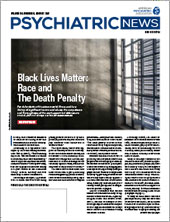The 2021 Clinical TMS Society Meeting and Pulses Course were held in West Palm Beach, Fla., in June. This was the first in-person interventional psychiatry meeting since the start of the pandemic. The majority of attendees had completed vaccination, and overall, they expressed a sense of gratitude and relief in being able to socialize and network in person while attending excellent lectures and workshops on current and evolving clinical applications of transcranial magnetic stimulation (TMS).
The meeting had two two-day components: The Pulses Course and the Annual Meeting. About 100 participants attended the Pulses Course. The course consisted of a series of lectures and demonstrations on the clinical administration of TMS and offered practical recommendations for implementing TMS in a clinical practice. Lecture topics ranged from a review of TMS for treatment-resistant depression (TRD) to how to negotiate the increasing complexity of insurance coverage for TMS. Attendees also had the opportunity to participate in a virtual lecture by Prof. Anthony Barker, designer of the first TMS machine in 1985. He reviewed the history and basic scientific principles of TMS.
More than 500 TMS researchers, clinicians, and thought leaders attended the Annual Meeting. The meeting featured a number of workshops and invited lecturers on a range of TMS topics. General themes included new research on clinical applications for TMS for neuropsychiatric conditions other than TRD (see box “Expanding Indications for TMS”), as well as evolving TMS applications to optimize outcomes for patients with TRD (see box “Optimizing Outcomes in Patients With Treatment-Resistant Depression”).
How can TMS be more rapid and effective in severe TRD patients? With evolving applications, can we raise remission rates to the equivalent of electroconvulsive therapy and intravenous ketamine? During the Annual Meeting, Nolan Williams, M.D., presented two open-label studies of patients who had very severe TRD (that is, would qualify for deep brain stimulation) utilizing the Stanford Accelerated Intelligent Neuromodulation Therapy (SAINT TMS) protocol. These datasets showed rapid reductions in depression and suicidality within three days of treatment. Remission rates at the end of the five-day protocol were > 90%.
There are a number of in-person meetings for psychiatrists who want to learn more about new developments in interventional treatments:
•
The Clinical TMS Society will hold another Pulses Course in Nashville, Tenn., September 11 and 12.
•
The American Society of Ketamine Physicians, Psychotherapists, and Practitioners (ASKP) will hold its 2021 Annual Conference (virtual/in person) in Detroit, Mich., November 4 to 6. This conference features education and research on ketamine, esketamine, and ketamine/esketamine-assisted psychotherapy.
•
The Fourth International Brain Stimulation Meeting will be held in Charleston, S.C., December 4 to 6. This will feature reports on ECT, VNS, TMS, DBS, and tDCS. ■
Expanding Indications for TMS
•
Bipolar depression: Prospective open-label data from two academic centers suggest that conventional TMS (10 hz to the L-DLPFC) may be effective in patients with treatment-resistant bipolar depression.
•
Addiction: Multisite sham-controlled data indicate that deep TMS with a unique coil design increases the rate of smoking cessation. Future studies are planned on other substance use disorders.
•
Adolescent depression: Studies are planned that combine psychotherapy with bilateral sequential TMS in adolescents with treatment- resistant depression.
•
Posttraumatic stress disorder: Studies are evolving to optimize improved brain network targeting and stimulation protocols.
•
Neuropathic pain: A consensus review by a 30-person multinational expert panel supports the finding that TMS reduces neuropathic pain.
•
Headaches associated with traumatic brain injury (TBI): The multinational expert panel supports the finding that TMS reduces headache associated with TBI.
Optimizing Outcomes in Patients With Treatment-Resistant Depression
•
Increasing the dose of intermittent theta burst TMS, acceleration, and optimizing targeting:◦
Prospective open-label data of the SAINT protocol (
AJP) suggest dramatically improved remission rates after just one week of treatment.
◦
The study design for a pivotal multisite randomized, controlled study is evolving.
•
Adding pulses and brain targets: Data comparing bilateral sequential TMS and conventional TMS show equivalent outcomes.
•
Optimizing patient selection with potential biomarkers: Emerging biomarkers and stratification of biomarkers to predict response to TMS are evolving, but definitive trials are needed.
•
Extending the duration of conventional TMS and developing protocols for continuation and maintenance TMS: Recent data from a literature review indicate that reintroducing TMS prior to full relapse improves patient outcomes and durability.

